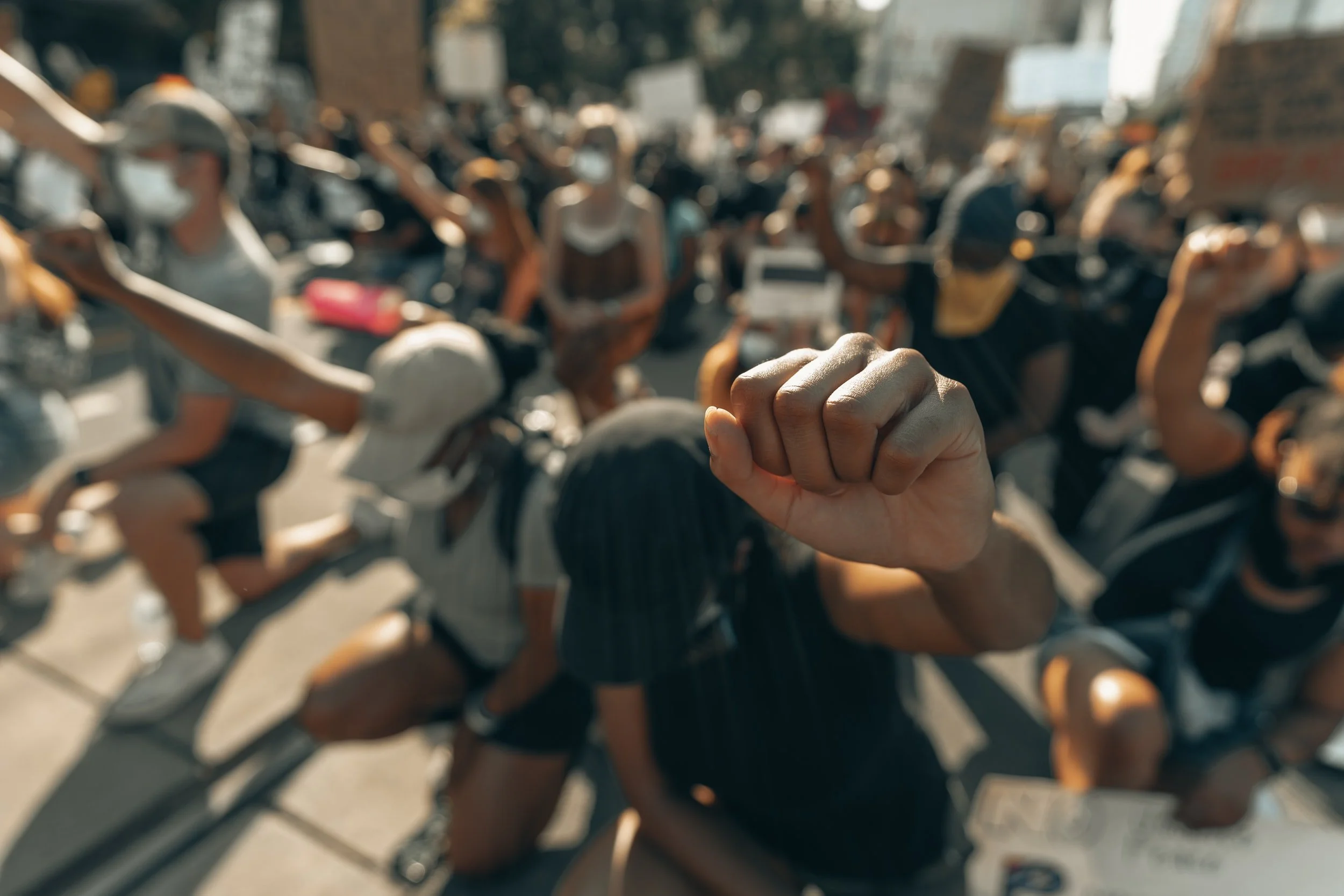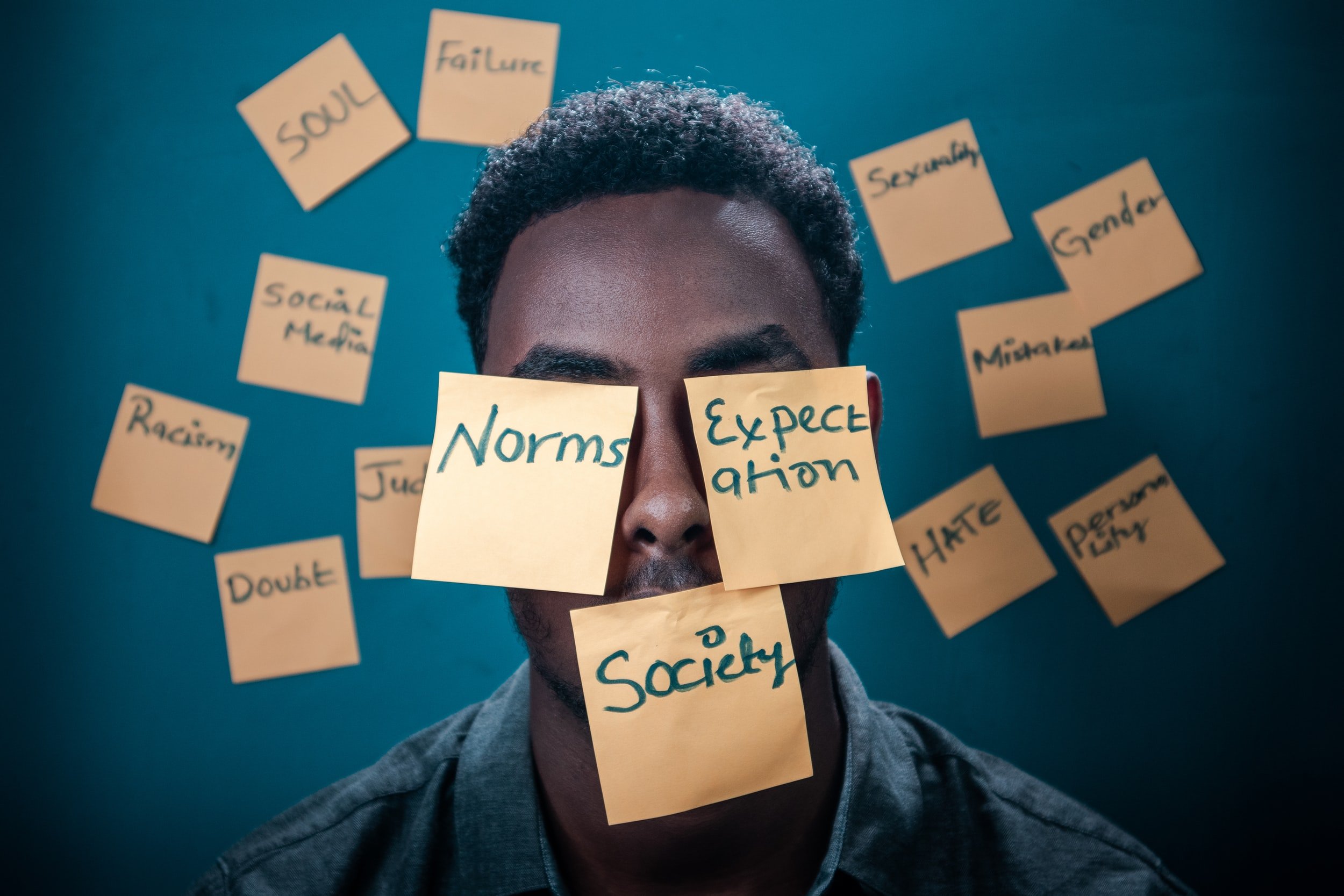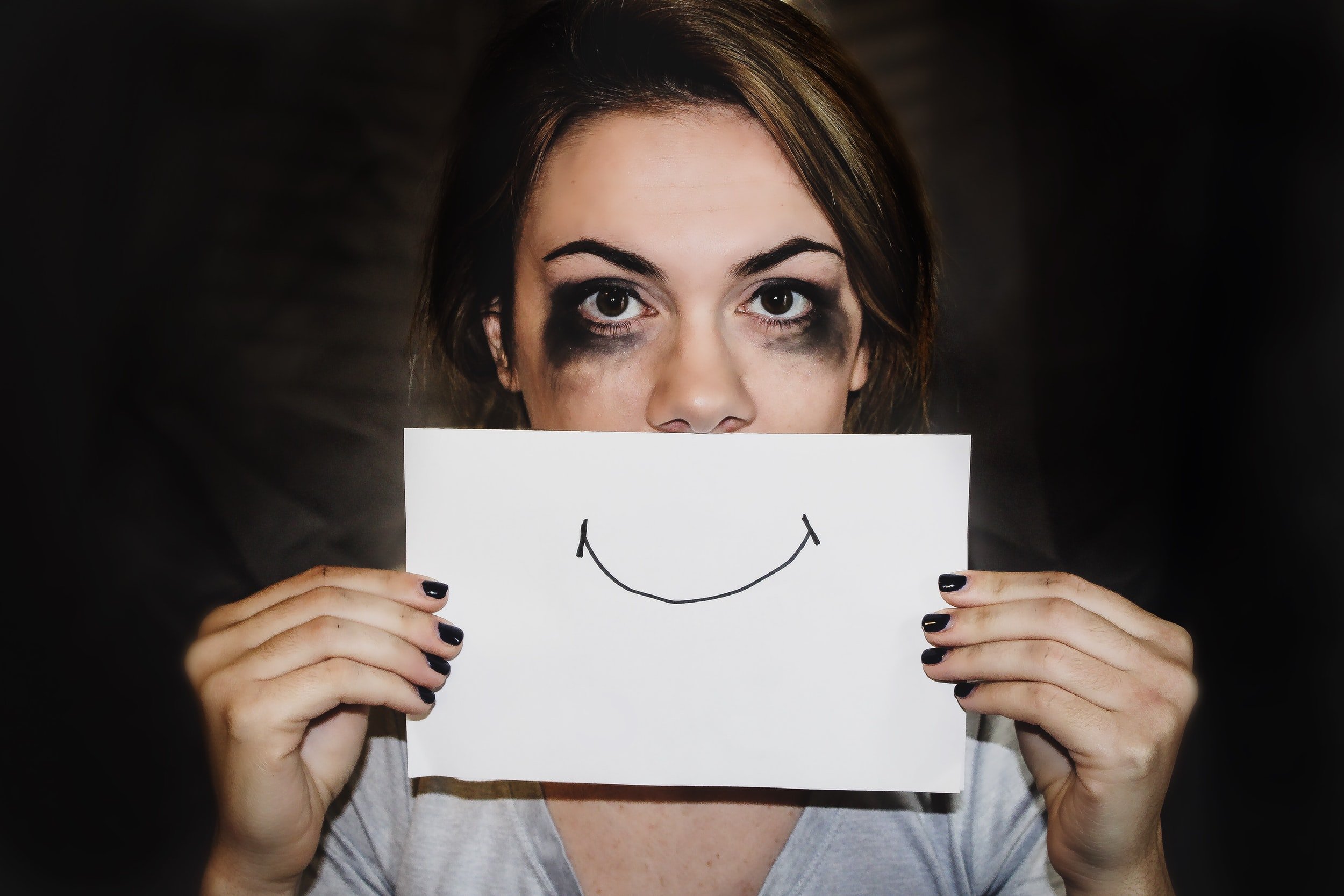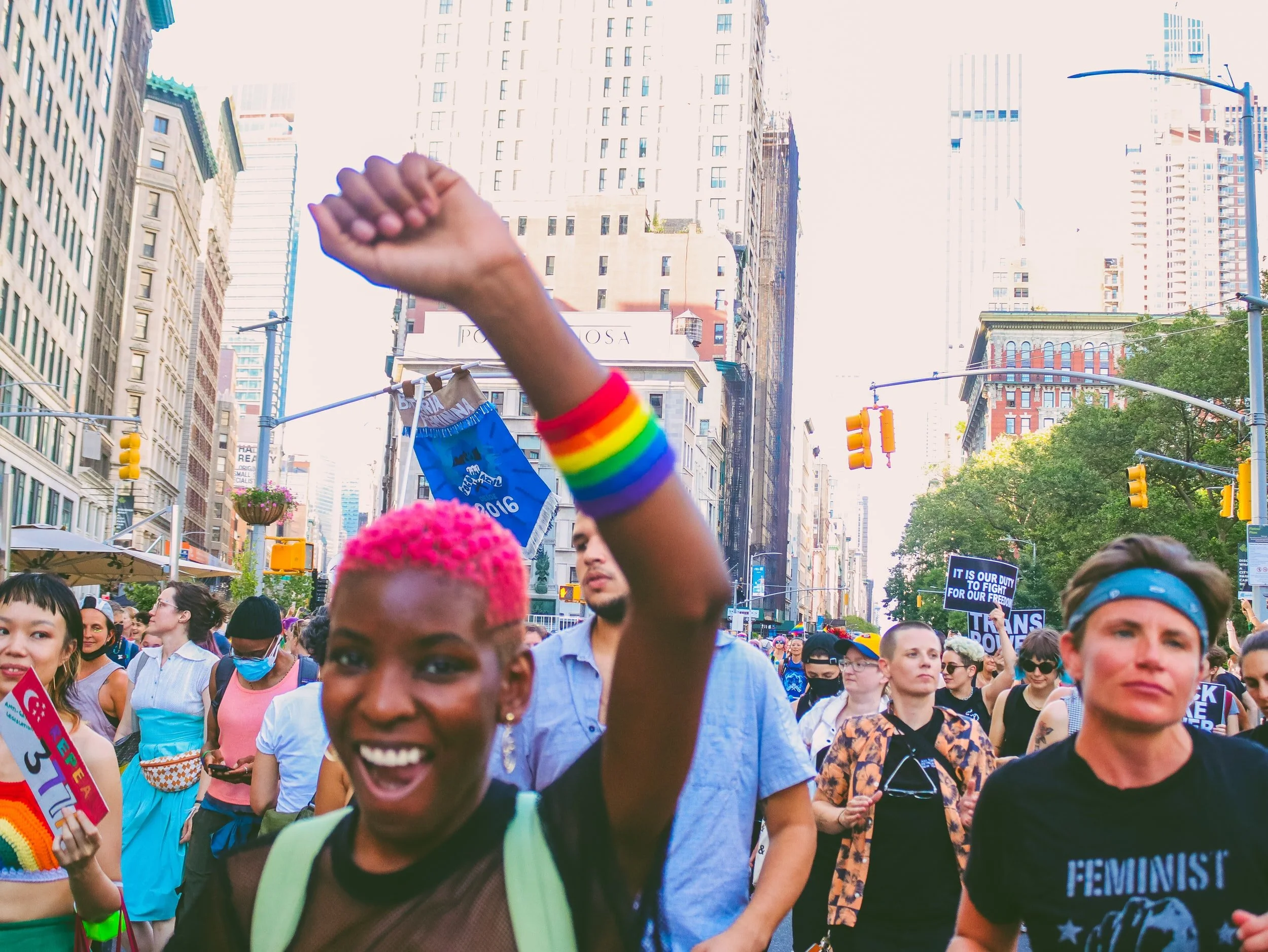
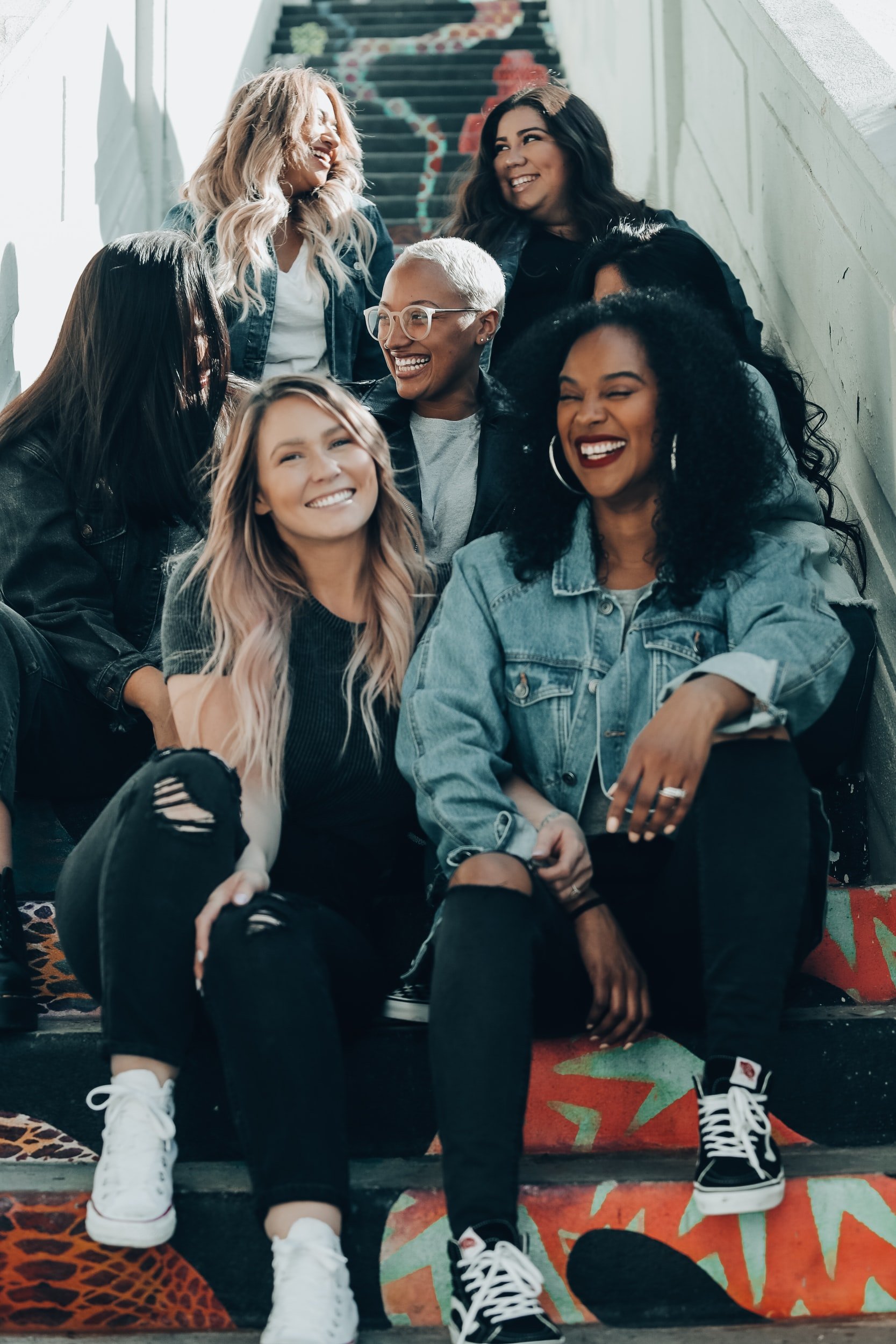
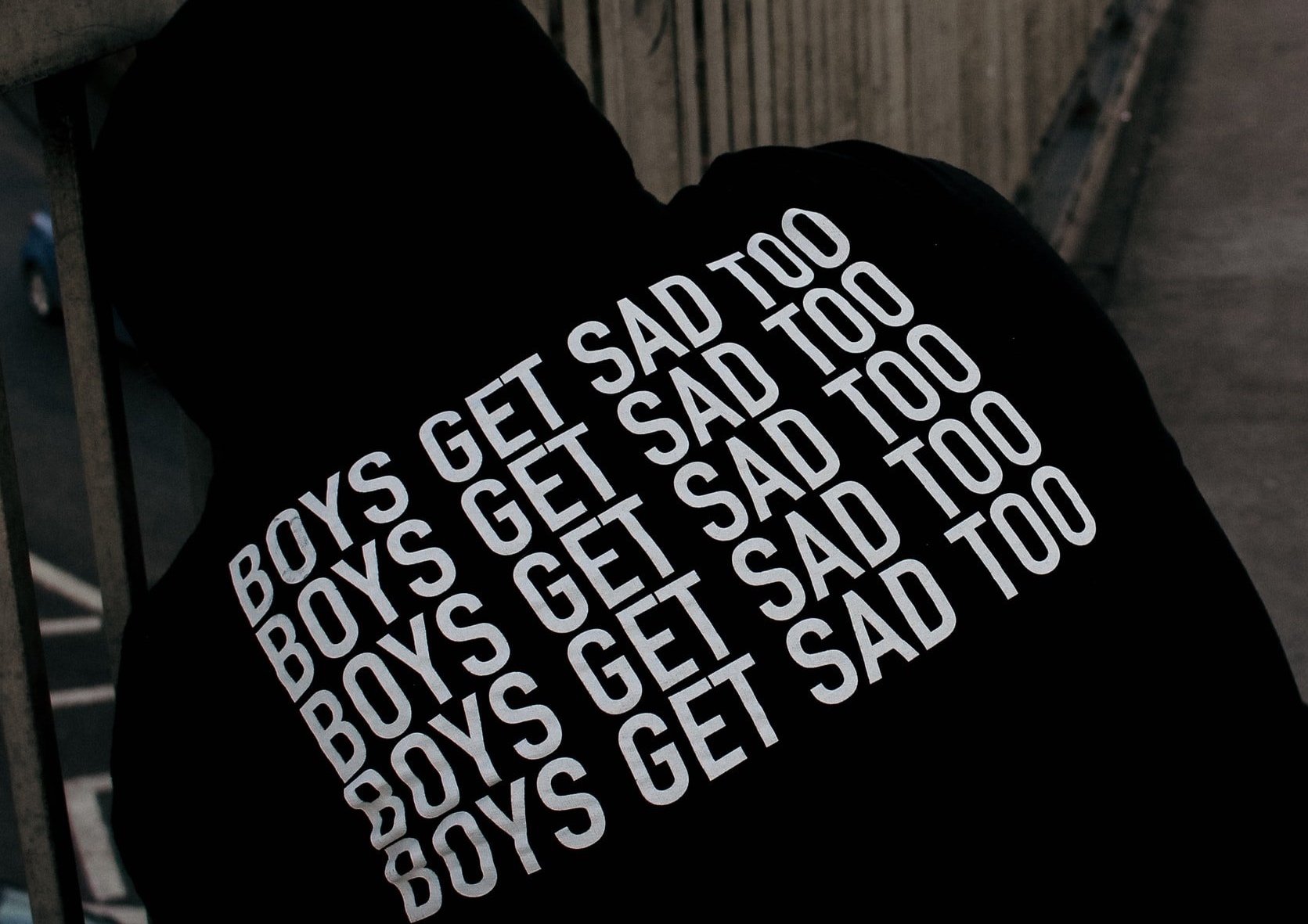
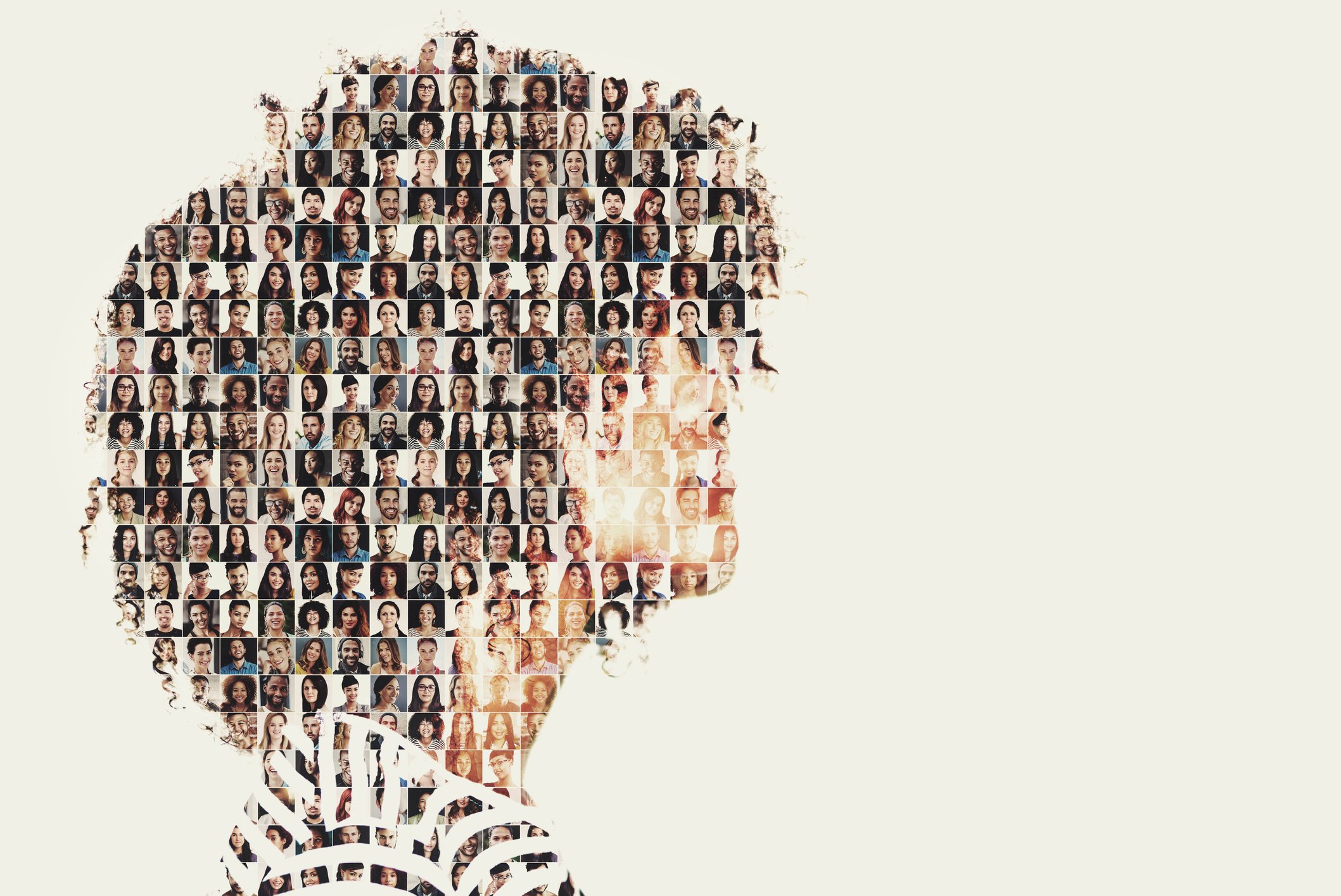
The Weight You’re Carrying
You wake up with your heart already racing. Before your feet hit the floor, you’re running through everyone else’s expectations, your boss’s deadlines, your family’s needs, your friends’ crises. You’re the one people lean on, the “strong one” who can’t break down, so you hold it together with a polished exterior and keep pushing through even when you’re running on empty. Asking for help sits like a lump in your throat; you swallow it down and carry everything on your own. Part of you screams, “How can they not see all I’m holding?” but still you don’t say a word because you’ve been taught not to burden anyone.
Under that polished exterior is a constant tightness in your chest, a mind that won’t stop replaying old hurts, and a voice whispering that taking care of yourself is selfish, that resting is lazy, guilt‑tripping you for wanting more. Maybe your childhood taught you to survive by shrinking yourself. Maybe the church told you that queerness was wrong. Maybe racism, misogyny, or family trauma left you feeling hyper‑vigilant and disconnected from your own body. You’ve been out here carrying all of that and still trying to do everything “right.” It’s exhausting. You’re tired of living a life that feels like a performance, tired of being the fixer while your own dreams sit on the back burner.
Imagining Something Different
Imagine going to bed without your mind racing through worst‑case scenarios. Imagine saying “no” without explaining yourself, and not losing sleep over it. Imagine walking into a room and taking up space without questioning whether you belong there. Imagine having relationships where you’re seen and loved for your whole, messy, beautiful self. Picture yourself laughing from your belly again, feeling grounded in your body, and making choices that align with who you truly are, not who you were told to be.
That’s not some fairy tale; it’s what happens when you let yourself be fully seen and supported. When you unlearn the internalized messages that have kept you small and reclaim the parts of you that have been hidden away. There is a version of you who feels powerful in her identity, who trusts her intuition, and who knows that rest is her birthright. That version isn’t buried somewhere far away; she’s right here waiting to breathe.
How We’ll Unfck It Together
As a Black, queer therapist who’s navigated these same oppressive systems, I bring more than clinical skills; I bring lived experience and a deep respect for your journey. In our virtual sessions, you’ll have a space where you can cuss, cry, question, and celebrate. We’ll slow down and listen to your body’s cues. We’ll name the trauma responses that used to keep you safe and decide which ones you’re ready to release. We’ll practice setting boundaries that protect your peace, even when guilt shows up. We’ll explore how to quiet the internalized critic and amplify the part of you that knows you deserve pleasure and joy.
I don’t reduce you to a diagnosis or pathologize your reactions to a messed‑up world. I see you as a whole and resilient person, one shaped by your experiences and environment. My role is to mirror your strength, hold you accountable to your own healing, and offer tools rooted in evidence‑informed practices and ancestral wisdom. Together, we’ll rewrite your story so it centers your liberation rather than your pain.
If you’re ready to stop surviving and start living, let’s talk. Book Your Free Consultation to see if we’re a fit. Your unfcked life is waiting.
-
A lot of the ways you’ve learned to survive were necessary at one point, and they worked. But survival mode isn’t the same as living fully. Together, we’ll sort through what no longer fits and build new ways of being that align with who you are now and who you want to become.
Finding Your Voice (Even When It Shakes): Learn to Quiet the Inner Critic and Unlearn the Script of Silence. You’ll reclaim your power to speak up with clarity and confidence in a way that feels true to you.
Prioritizing Yourself (Even When It Feels Hard)
Your generosity is a gift, but it shouldn’t come at the cost of your well-being. We’ll work to dismantle the conditioning that says you always have to come last, so you can set boundaries and care for yourself even if the guilt doesn’t disappear overnight.Communicating with Confidence (Without Losing Yourself)
If you’ve felt unseen, unheard, or dismissed, you’re not alone. We’ll build communication skills that help you express your needs and desires with honesty and strength so your voice isn’t just heard, it’s respected.This is about unlearning survival strategies that no longer serve you, breaking free from expectations that keep you small, and stepping into your unapologetic self. You don’t need to shrink or dim; your full, authentic presence is the point.
-
Healing from relational trauma can feel overwhelming. You may be carrying the weight of something that was never your fault, and it shows up in ways that feel heavy and confusing:
Shame, fear, guilt, or self-blame
Feeling unworthy, unlovable, or “too much”
Chronic pain or tension in the body (like headaches or stomachaches)
Struggles in relationships, work, or simply feeling safe in yourself
Relational trauma isn’t always one big event. Sometimes it looks like a pattern of smaller experiences that leave lasting marks whether that’s:
Overt abuse (physical, sexual, emotional, or psychological)
Neglect or abandonment (emotional or physical)
Witnessing harm or violence
Racism, discrimination, or systemic oppression
These experiences can shape the way you see yourself and the world. But they don’t have to define who you are or who you’re becoming.
Together, we’ll work to:
Understand how your past is showing up in the present
Learn practical tools for regulating your nervous system and managing triggers
Build skills to create and maintain healthy relationships
Strengthen your resilience and self-compassion in ways that last
You’ve carried enough on your own. Together, we’ll find tools that help you feel steady, safe, and connected to who you are.
-
I approach anxiety as an experience, not just a diagnosis. At its core, anxiety is rooted in valid experiences; it’s our body’s way of trying to keep us safe. The problem is, what once served as protection can start showing up when we don’t need it, making everyday life feel heavier than it should.
Ever feel consumed by worry or fear, even in situations that seem safe? That’s anxiety at work. Our nervous system’s natural “fight-or-flight” response gets triggered by everyday stressors, leaving us feeling on edge or overwhelmed.
These are just some of the ways anxiety can show up:
Overthinking and negative thought patterns: Playing out worst-case scenarios, even for minor situations.
Decision paralysis: Struggling to make even small choices or second-guessing every option.
Attachment challenges: Worrying about being abandoned, overanalyzing relationships, or needing constant reassurance.
Difficulty completing daily tasks: When simple things, like leaving the house, feel overwhelming.
Physical symptoms: Racing heart, stomach pain, chest tightness, sweating, “butterflies,” or shortness of breath.
Sleep and focus issues: Trouble falling asleep, staying asleep, or concentrating during the day.
Irritability or restlessness: Feeling on edge, tense, or unable to relax.
Understanding how anxiety works is the first step, but it’s not the last. In therapy, we work together to build tools that help regulate your nervous system, quiet racing thoughts, and cultivate a sense of steadiness, allowing you to move through life with greater ease and confidence.
-
At Unfcked Therapy & Wellness, LGBTQIA+ people are respected and affirmed without question.
The people I work with bring many different things into the room: stress, anxiety, trauma, identity questions, perfectionism, life transitions, and relationship challenges. For LGBTQIA+ people, those same struggles are often shaped by unique realities like family rejection, discrimination, code-switching in unsafe spaces, or working through internalized shame. Therapy can also be a space to explore gender expression, labeling, coming out, and identity development without judgment or pressure.
My role is to hold space for all of it: the challenges, the healing, and the joy, resilience, and creativity that are part of queer identity. Here, you don’t have to explain or defend who you are, just show up and focus on what matters most to you.
-
The realities of growing up in Detroit and similar urban communities are complex and multifaceted. On one hand, survival in environments shaped by crime, violence, and systemic neglect fosters resilience, adaptability, and resourcefulness. These survival strategies are not inherently harmful; they represent strength in the face of adversity. At the same time, living in a state of heightened alertness or uncertainty can have lasting psychological and physical effects.
The term “Hood PTSD” is not a formal clinical diagnosis, but rather a way of naming the chronic trauma that can come from sustained exposure to unsafe environments and structural inequities. It reflects the combined impact of individual experiences such as witnessing or experiencing violence and the weight of intergenerational, systemic, and historical trauma, including racism, redlining, poverty, and disinvestment in communities of color. Together, these conditions can shape mental health outcomes and limit one’s sense of safety, stability, and possibility.
Therapy provides a space to process these experiences, address symptoms such as anxiety, depression, hypervigilance, and relational difficulties, and to honor the resilience that has already carried you this far. The work focuses on creating tools and practices that support healing, reduce the need to live in a constant state of survival, and open up possibilities for greater safety, stability, and growth.
